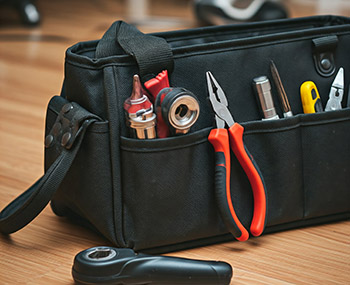DIY Lock Rekeying and Changing: What You Need to Know
 Improving your home’s security doesn’t always require a professional locksmith. In fact, rekeying or changing your door locks yourself can be both an affordable and effective way to enhance safety—provided you have the right tools and know-how. While hiring a locksmith in Chelmsford typically costs between £50 and £150 per lock for services like rekeying or replacement, a DIY approach allows you to save on those labor fees. However, be aware that there are costs associated with purchasing the necessary tools, such as rekeying kits, which could be an initial investment for the project.
Improving your home’s security doesn’t always require a professional locksmith. In fact, rekeying or changing your door locks yourself can be both an affordable and effective way to enhance safety—provided you have the right tools and know-how. While hiring a locksmith in Chelmsford typically costs between £50 and £150 per lock for services like rekeying or replacement, a DIY approach allows you to save on those labor fees. However, be aware that there are costs associated with purchasing the necessary tools, such as rekeying kits, which could be an initial investment for the project.
Rekeying is generally the more cost-effective option compared to replacing an entire lock, as it only involves modifying the existing lock to work with a new key. Changing a lock altogether, which typically costs between £100 and £200 in Chelmsford, can also be done yourself if you’re comfortable with basic tools and following instructions. Below, we’ll walk you through the essential tools, the costs involved, and some of the common mistakes to avoid when attempting to rekey or change a lock on your own.
Tools and Tips for Rekeying
To successfully rekey a lock yourself, the most important tool you’ll need is a rekeying kit. These kits are designed for specific lock types and usually come with the necessary pins, springs, and instructions. A basic kit typically costs between £20 and £50, depending on the brand and quality. For those looking to rekey multiple locks, investing in a more professional pinning kit may be worth considering—though these can range from £150 to £300. However, if you’re only rekeying one or two locks, a basic kit should suffice. Other tools that will come in handy during the rekeying process include:
– Phillips screwdriver for disassembling and reassembling the lock
– Pliers for manipulating small parts
– Flashlight to illuminate the lock mechanism, especially in low light
While rekeying may seem like a straightforward task, it’s crucial to approach it with caution. Without the original key, rekeying can be more complicated, requiring additional tools or expertise. Mistakes made during the rekeying process—such as damaging the pins or springs—could render the lock unusable, leading to more expensive repairs down the line.
Can You Rekey or Change Locks Yourself?
In short, yes, both rekeying and changing locks are tasks most homeowners can manage, assuming you have the right tools and a steady hand. Changing a lock is the simpler of the two tasks. Typically, it requires only a screwdriver to remove the old lock and install a new one, with instructions provided. This is generally a one-hour job, even for a novice, as long as you follow the steps carefully. However, if you’re installing a high-security lock or if you’re unsure about the process, hiring a locksmith might be a safer choice to ensure the lock is installed correctly and securely.
Rekeying a lock, on the other hand, is slightly more complicated. It involves disassembling the lock, replacing the old pins with new ones that correspond to your new key, and carefully reassembling the lock. While rekeying is a rewarding task for those with a mechanical aptitude, it does require precision. If you’re uncertain about your skills, consulting a professional locksmith may save you time and help avoid damaging the lock.
DIY vs. Professional Assistance
While DIY rekeying and lock changes are certainly doable, it’s essential to assess the complexity of the task and your own skill level. Here’s a comparison to help you decide whether to take the DIY route or hire a locksmith:
– DIY Rekeying: This can save you money, and is a good option for someone with basic mechanical skills and patience. However, it’s crucial to have the right tools and to follow the instructions precisely.
– DIY Lock Change: Changing a lock is generally easier than rekeying, especially with standard locks, but still requires attention to detail. If the lock is not installed correctly, it could compromise your home’s security.
– Professional Locksmith Assistance: If you’re dealing with high-security locks, complex systems, or are unsure about rekeying, hiring a professional ensures the job is done right. Locksmiths have the expertise, tools, and experience to handle any complications that might arise.
When in doubt, hiring a locksmith to handle rekeying or lock changes ensures peace of mind, reducing the risk of errors or incomplete security measures.
Process and Practical Considerations for Rekeying Locks
 The amount of time it takes to rekey a lock depends on the type of lock and the experience of the person doing it. Professional locksmiths typically complete the rekeying process in about 10 to 40 minutes, with simpler locks taking as little as 15 minutes. More complex systems can take longer.
The amount of time it takes to rekey a lock depends on the type of lock and the experience of the person doing it. Professional locksmiths typically complete the rekeying process in about 10 to 40 minutes, with simpler locks taking as little as 15 minutes. More complex systems can take longer.
For DIYers, it’s important to remember that removing the lock from the door often takes more time than the actual rekeying process itself. If you’re unfamiliar with the task, it could take longer to disassemble the lock, but once you access the lock mechanism, the rekeying step itself is relatively quick.
Before starting, make sure your lock is suitable for rekeying. Most standard pin-tumbler locks can be rekeyed if they are in good condition. If the lock works smoothly and securely, it is likely rekeyable. If your lock is damaged, excessively worn, or has been poorly maintained, it may be better to replace it rather than attempt rekeying. Certain locks, like high-tech electronic or smart locks, may not be rekeyable in the traditional sense, and could require a factory reset or even full replacement.
If you’ve lost your key or need to upgrade security without replacing the entire lock, rekeying is a great option. However, rekeying without the original key (referred to as “blind rekeying”) is more complicated. It involves manually determining the correct pin configurations, which can be tricky and may require professional help for accuracy.
Risks and Tools for Rekeying Locks
While rekeying is an affordable way to improve security, there are certain risks involved, especially if you attempt the task without sufficient experience or the right tools.
– Accidental damage to the lock is one of the most common risks. If the lock is old or already damaged, rekeying could cause the internal mechanisms to fail entirely.
– Misaligning the pins or springs can lead to a stiff or malfunctioning lock that could be difficult to operate, or worse, could render the lock completely unusable. This is especially risky if you’re not familiar with the intricacies of lock mechanisms.
One of the key benefits of hiring a professional locksmith is that they come equipped with specialized tools. These include:
– A rekeying kit, containing pins, springs, and keys for specific lock brands
– Plug followers to secure the pins as the cylinder is removed
– Tension wrenches for maintaining pressure on the lock during rekeying
– Pick tools to manipulate pins with precision and avoid mistakes
For those who prefer the DIY route, these tools are available for purchase, but can be costly for a one-time job. A basic rekeying kit typically costs around £20 to £50, but professional-grade tools can cost hundreds of pounds.
Conclusion
While rekeying or changing your locks yourself can be a cost-effective solution to improving home security, it requires a good understanding of the tools and processes involved. Whether you’re looking to save on locksmith fees or simply enjoy DIY projects, knowing when to call a professional is key. If you’re unsure about your ability to tackle the task, or if you’re working with high-security locks, it’s always worth consulting a locksmith to ensure your security remains intact.
FAQ
- What should I do if my lock jams after rekeying?
If your lock jams after rekeying, check if the pins and springs are properly aligned. Misalignment is a common issue and often requires disassembly to correct. If the lock is still stuck, contact a professional locksmith to avoid damaging the mechanism further.
- Can rekeying make my existing lock more secure?
Yes, rekeying can improve your lock’s security by ensuring old keys no longer work. It’s an affordable way to prevent unauthorised access, particularly if you’ve lost your keys or moved into a new home.
- Are there certain types of locks that can’t be rekeyed?
Electronic and smart locks generally cannot be rekeyed in the traditional sense and might require a factory reset or replacement. Additionally, severely worn or damaged locks may not be suitable for rekeying.
- Do I need to rekey my locks after losing a key?
Yes, rekeying is an excellent way to prevent unauthorized access if you’ve lost a key. It’s a quick, affordable solution compared to replacing the entire lock.
- How do I know if I’ve made a mistake during the rekeying process?
If the new key doesn’t turn smoothly or the lock jams, it’s a sign that the pins or springs may be misaligned. Disassemble the lock to realign the components, or call a locksmith for professional help.
- Can rekeying a lock prevent previous keyholders from gaining access?
Yes, rekeying ensures that old keys no longer work, providing an effective way to prevent former tenants, contractors, or others with previous access from entering your home.
